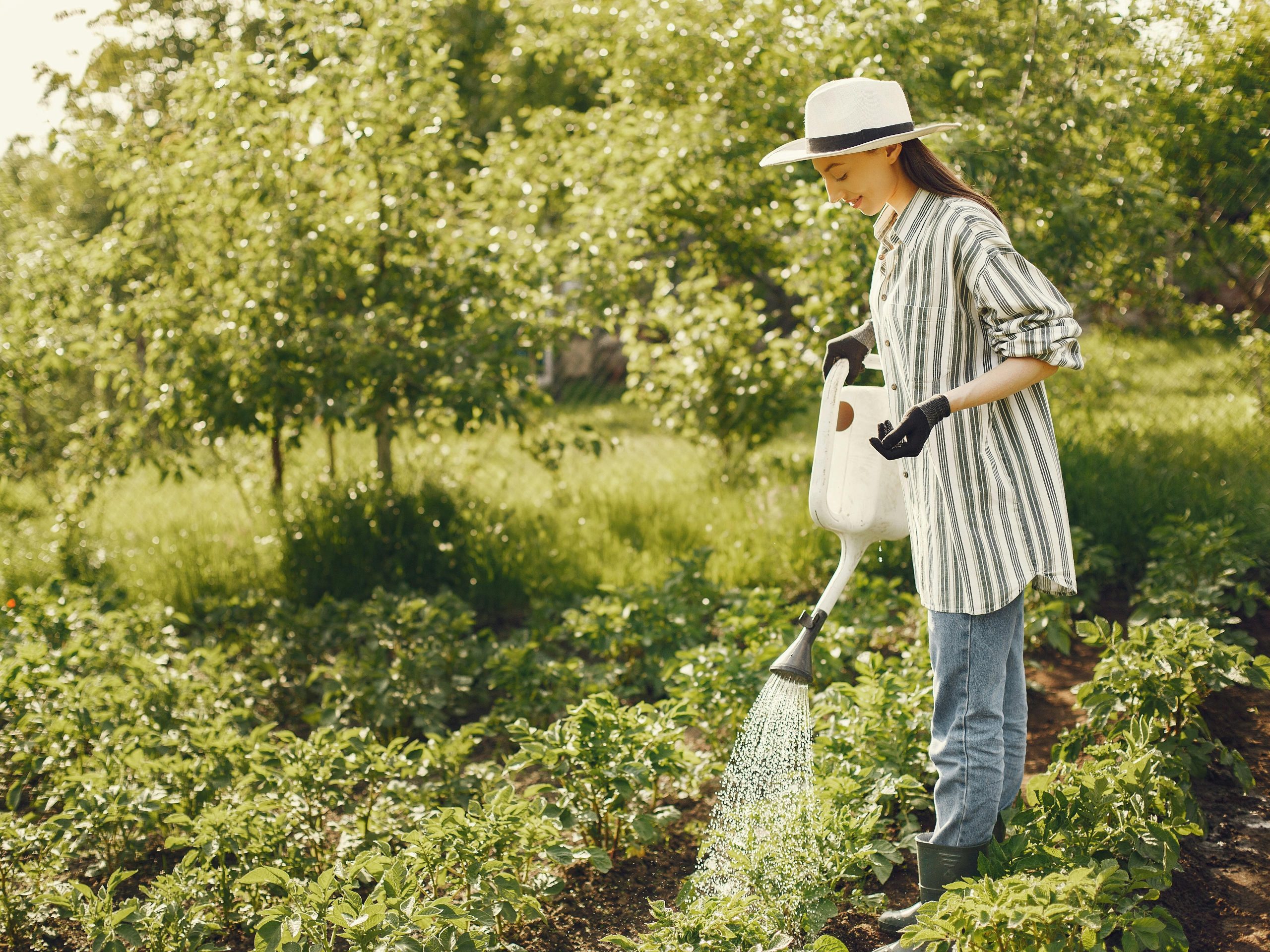Read Time: 6 minutes
In an era where sustainability and self-sufficiency are becoming increasingly vital, the idea of growing your own vegetables is gaining momentum. The process of caring for a seed which grows into a strong plant that can be harvested is unmatched. However, while the concept of having your produce from a vegetable garden might sound idyllic, the reality can often be difficult. This is where the expertise of a professional gardener comes into play, making your garden dreams into a reality.
The Importance of Professional Guidance
Embarking on a vegetable gardening journey without proper knowledge and experience can lead to frustration and disappointment. After all, from soil preparation to pest management, there are numerous factors to consider. Moreover, each step requires careful attention to detail. Thus, this is where hiring a professional gardener can make all the difference.
Expertise in Soil Health
Indeed, one of the most important aspects of a successful vegetable garden is healthy soil. Professional gardeners possess the expertise to assess soil quality and structure in detail. Moreover, they can conduct soil tests to determine nutrient levels and pH balance, necessary factors for plant growth. Afterwards, they can recommend solutions or techniques to improve your soil, creating optimal conditions for your vegetables to thrive in.
Tailored Vegetable Garden Design
Every garden is unique, influenced by factors such as climate, exposure to the sun, and available space. A professional gardener can design a layout custom to your specific conditions, making the most of your space and plants. Whether you have a small urban plot or a large backyard, they can use space and placement for optimal plant growth.
Pest and Disease Management
Dealing with pests and diseases is always a part of gardening, but it doesn’t have to be overwhelming. Professional gardeners have plenty of knowledge in identifying common garden pests and diseases. Moreover, after studying your garden, they can execute effective control measures. From organic pest deterrents to integrated pest management strategies, they can help protect your vegetable garden from potential threats. This thereby ensures healthy crops throughout the growing season.
Seasonal Planning and Crop Rotation
Another aspect of a successful vegetable garden is careful planning and timing. Professional gardeners can develop detailed planting schedules for your specific climate and growing conditions. Moreover, they understand the importance of crop rotation in keeping soil healthy and preventing pest or disease buildup. By using a strategy to rotate crops each season, they can achieve the best yields while reducing the risk of nutrient depletion and plant illness from the soil.
Irrigation and Water Management
Additionally, using the proper amount of water is critical for the health of your vegetable garden. Overwatering or underwatering can lead to stunted growth, root rot, and other problems. Therefore, professional gardeners can design and implement the best irrigation systems specific to your garden’s needs. This ensures that your plants receive the right amount of water at the right time. Whether it’s drip irrigation, soaker hoses, or rainwater harvesting techniques, they can help save water while creating healthy plant growth.
The Benefits of a Bountiful Harvest
The rewards of a healthy vegetable garden extend far beyond the pride of a successful harvest. To explain this, here are some of the key benefits:
Nutritional Superiority of a Vegetable Garden
Homegrown vegetables are not only fresher with more flavour but also have more nutrition compared to those bought at a store. By growing your own vegetables, you have full control over the growing process, taking away the need for harmful pesticides and chemicals. This results in healthier, more nutrient-rich produce for you and your family to enjoy.
Cost Savings from a Vegetable Garden
While there may be an initial investment in setting up a vegetable garden, the long-term savings are plenty. By growing your vegetables, you can significantly reduce your grocery bill while enjoying a continuous supply of fresh, organic produce. Additionally, homegrown vegetables are free from the markups paired with store-bought produce, giving excellent value for your money.
Environmental Sustainability
Commercial agriculture often relies on chemical inputs and long-distance transportation, creating environmental issues and carbon emissions. While growing your own vegetables, you can reduce your carbon footprint and promote sustainability in the environment. Home gardens also provide an essential habitat for pollinators and insects, creating biodiversity and ecological balance.
Stress Relief and Mental Well-Being
Gardening has been shown to have numerous therapeutic benefits while promoting relaxation and reducing stress levels. Spending time outside when tending to your vegetable garden can provide a welcome escape from the hustle and bustle of daily life. The rhythmic tasks of planting, watering, and weeding can have a calming effect, allowing you to unwind and connect with nature. Additionally, the sense of accomplishment that comes from caring for plants and watching them grow can boost self-esteem and enhance overall mental well-being.
Community Engagement and Sharing
Additionally, a thriving vegetable garden can serve as a focal point for community engagement and sharing. Whether you’re part of a community garden project or simply sharing your harvest with neighbours and friends, gardening fosters connections and promotes a sense of belonging. It provides moments for collaboration, knowledge exchange, and collective problem-solving. Thus, social bonds are strengthened and a sense of community is built. By creating relationships through gardening, you not only enrich your own experience but also contribute to the well-being of your community as a whole.
Plants for your Vegetable Garden
Of course, there is a wide variety of vegetables commonly grown in home gardens. With your climate, soil conditions, and personal preferences in mind, you may choose to grow some or all of these plants in your vegetable garden:
- Tomatoes
- Peppers (bell peppers, chilli peppers)
- Carrots
- Lettuce (various types such as romaine, iceberg, and leaf lettuce)
- Cucumbers
- Zucchini
- Squash (including summer and winter squash)
- Beans (green beans, snap peas, pole beans)
- Radishes and Beets
- Spinach
- Kale
- Broccoli
- Cauliflower
- Cabbage
- Onions (including green onions and bulb onions)
- Garlic
- Potatoes (regular and sweet)
- Eggplant
- Corn
- Herbs (such as basil, parsley, cilantro, and mint)
- Brussels sprouts
- Asparagus
- Celery
Your Path to a Flourishing Vegetable Garden
Achieving the vegetable garden of your dreams is within reach with the assistance of a professional gardener. Whether you’re a novice gardener looking to get started or an experienced enthusiast seeking to make your garden more productive, a professionals help can make all the difference. From soil analysis to crop choice, they can guide you every step of the way. Moreover, they can help you overcome challenges and unlock the full potential of your garden.
At Nomenial, we can help connect your household with skilled professionals who can bring your gardening visions to life. Whether you’re looking for ongoing maintenance or a spring cleanup, our team is here to help. Take the first step towards a bountiful harvest by hiring a professional gardener today. Contact Nomenial to learn more about our services and find the perfect gardening partner for your journey.
GET IN TOUCH
Send an Enquiry
-
How to Cope with a New Private Household Job
Starting a new job in a new household can be challenging at times. While it has the potential to be a great and enlightening experience, it can also be stressful and nerve-racking at times, especially if there is something you are not used to. Below is an overview of how you can cope with starting
-
5 Reasons to Hire a Gardener
1. Save time and energy When deciding whether to hire a professional gardener, you must consider the time and energy you can save. It can give you time to do other things like spending time with your family. It can keep you out of the heat during the warmer spring and summer months and reduce
-
Recruitment Agency: Is It the Right One?
Perhaps the biggest question that comes to mind is: why this recruitment agency? Is it right for me? There are plenty of factors to account for when considering this. Here are some factors to consider. First of all, let’s look into the purpose of using a recruitment agency in the first place. Knowing what you’re







